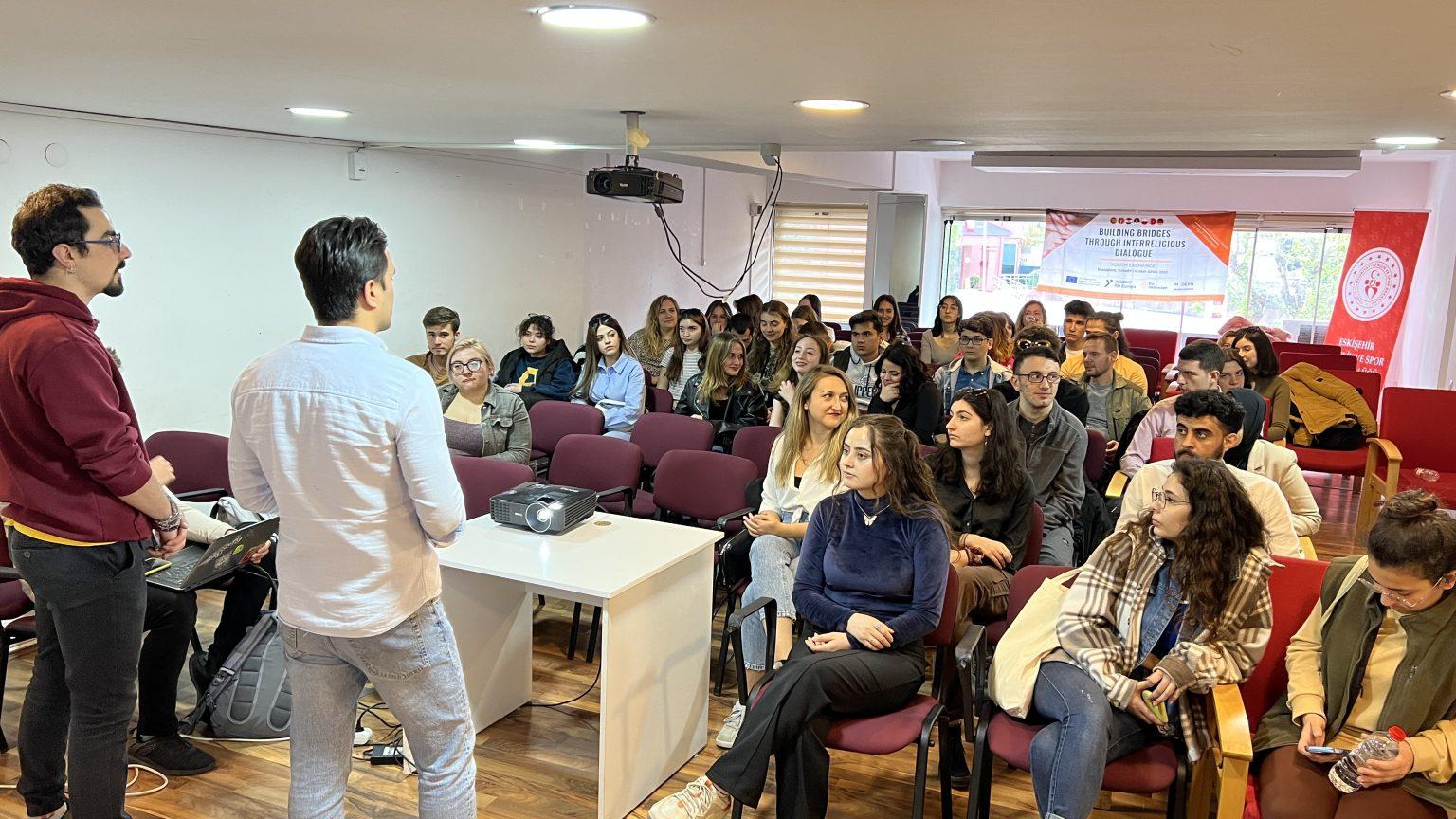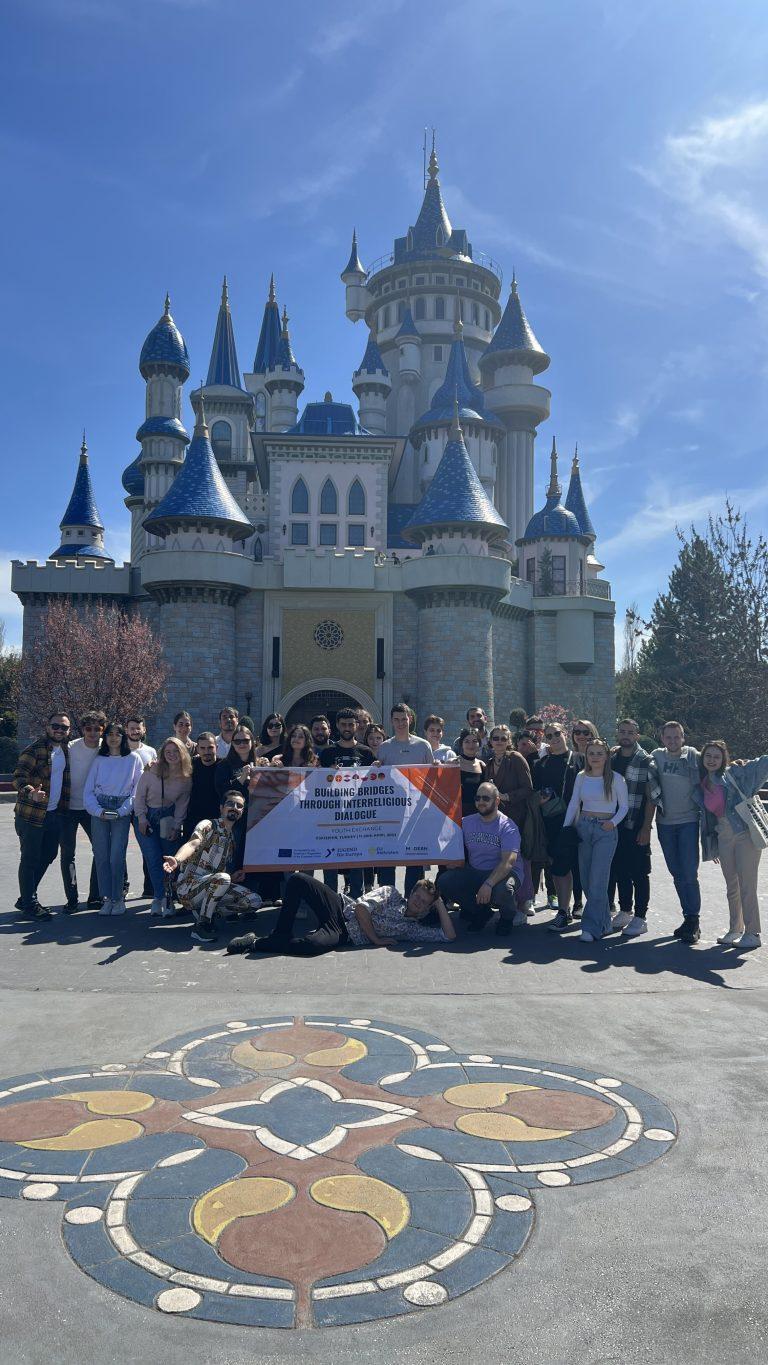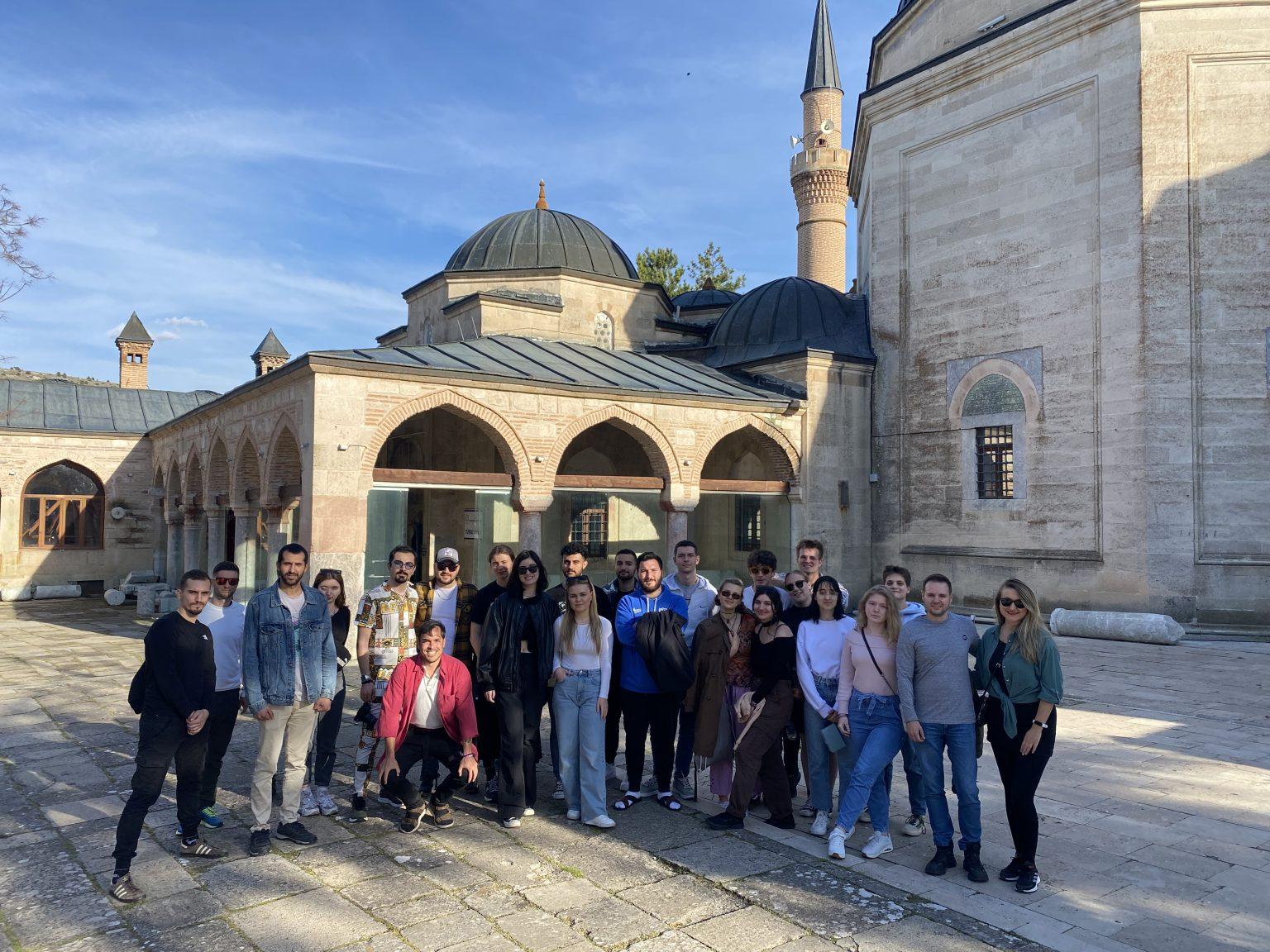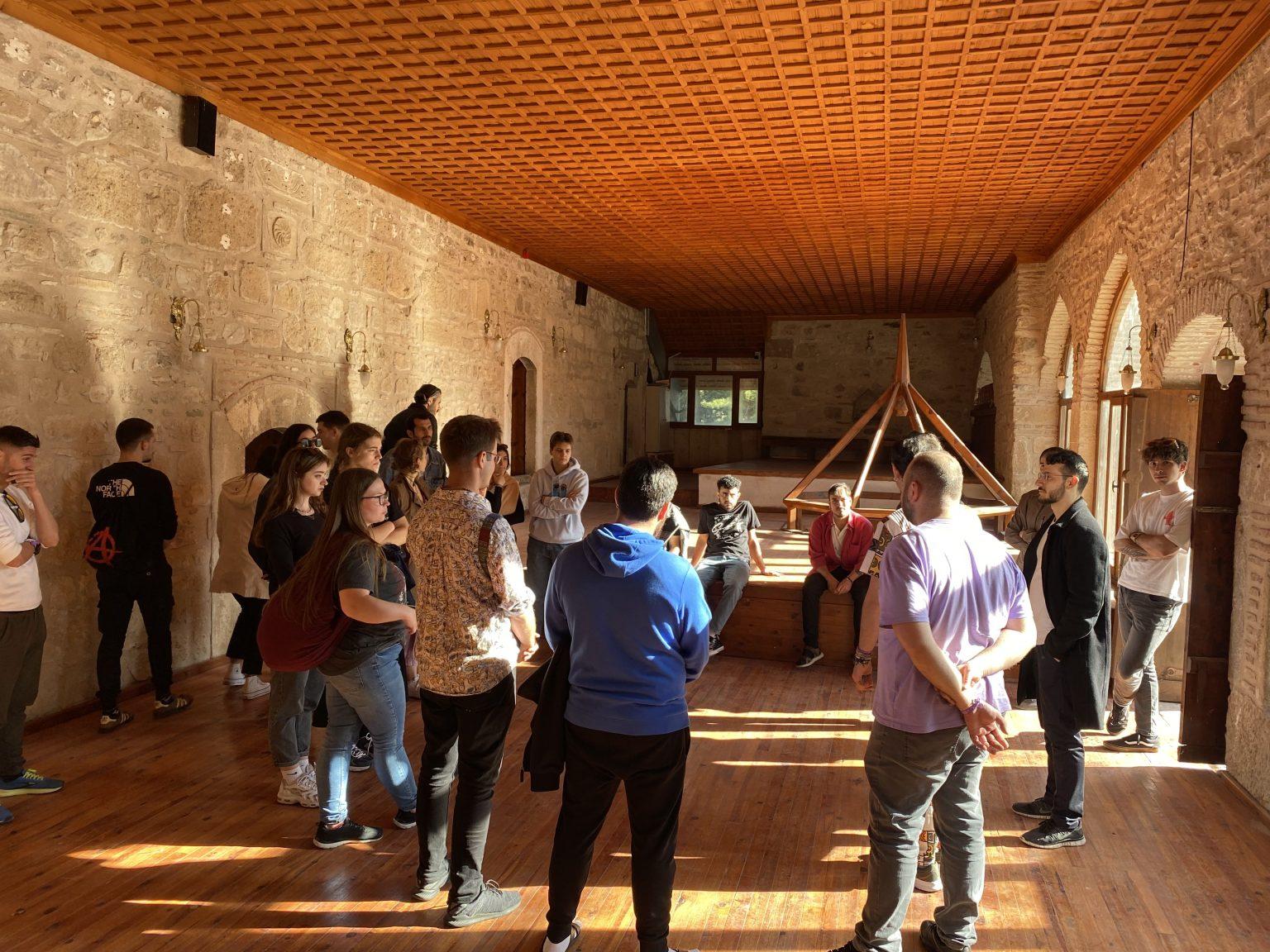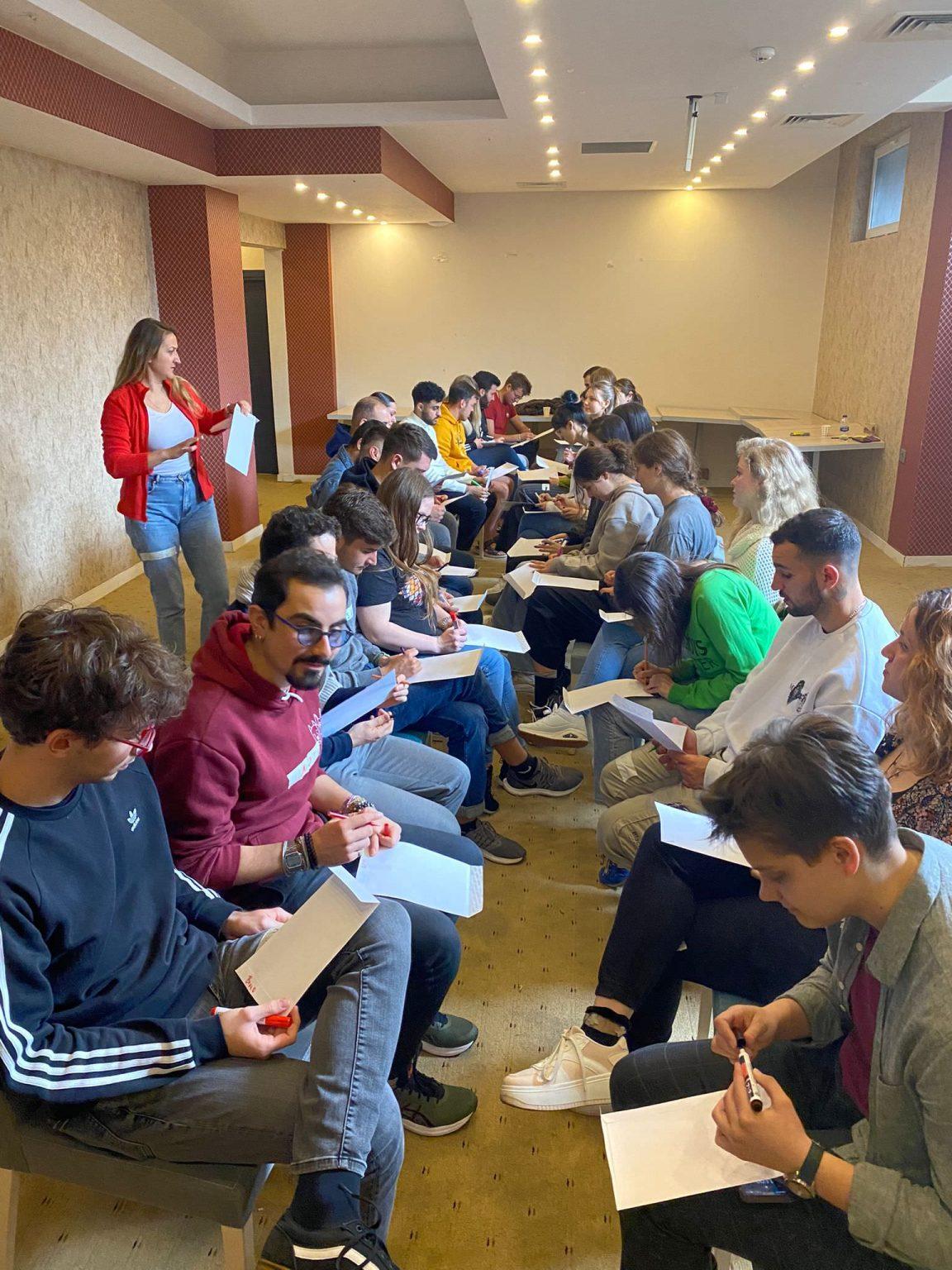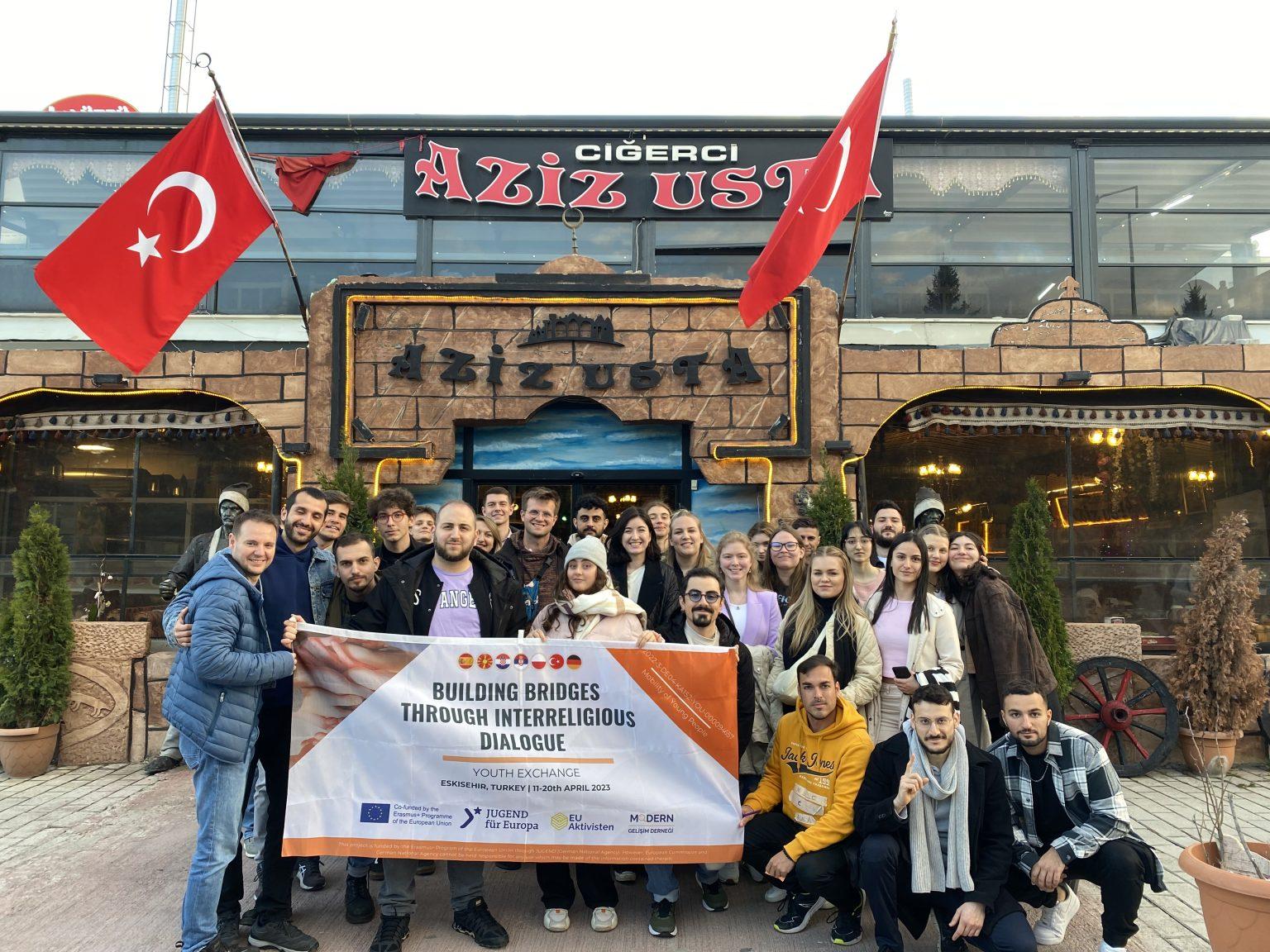Project Reference
2022-3-DE04-KA152-YOU-000094657
Topics
European Identity and Values – Preventing Radicalisation
Action Type
Mobility of Young People
Countries Covered
Germany, Croatia, Türkiye, North Macedonia, Serbia, Spain, Poland
Summary
The youth exchange “Building Bridges through Interreligious Dialogue” created a space where young people from seven European countries explored religious diversity and intercultural dialogue as tools to fight religious discrimination. The exchange promoted non-formal education and encouraged participants to reflect on three key aspects: religion as a human right, the diversity of religions, and the role of young people in countering discrimination and hate speech.
Objectives
The project aimed to:
-
Open dialogue on interreligious cooperation and explore religious diversity across participating countries.
-
Provide a safe space to discuss the roots of religious discrimination and hate speech.
-
Identify ways to build inclusive societies respectful of different religious backgrounds.
-
Develop competencies such as communication, teamwork, and intercultural collaboration.
-
Create an inspiring environment for brainstorming future international projects.
-
Produce a short film on interreligious dialogue as the main project result.
-
Organize film screenings in partner countries to raise awareness and present Erasmus+ to a wider audience.
Activities
The exchange gathered young people (aged 18–30) and group leaders, from Germany, North Macedonia, Serbia, Croatia, Türkiye, Poland, and Spain.
Key characteristics of the participants included:
-
Motivation to explore interreligious dialogue and discrimination.
-
Willingness to participate fully in preparation, implementation, and follow-up activities.
-
Openness to intercultural learning and ability to work in English.
-
Inclusion of newcomers to Erasmus+ activities.
-
Active participation of young people with fewer opportunities (4 per national team).
Group leaders were experienced youth workers ready to facilitate learning, support participants with fewer opportunities, and apply non-formal education methods. Many also brought digital and filmmaking skills to help guide the creation of the short film.
Impact
At the participant level, young people increased their knowledge of interreligious dialogue, improved their awareness of religious diversity, and explored the roots of discrimination and hate speech. They developed key competences including communication in English, public speaking, teamwork in multicultural environments, and goal-setting. They also gained motivation to remain active in Erasmus+ and other youth initiatives.
At the organizational level, partner NGOs strengthened their capacities to address discrimination, gained new tools and project ideas, and built stronger networks for international cooperation.
At the local level, the hosting community in Eskişehir, Türkiye—a student city with many young people unfamiliar with Erasmus+—benefited from intercultural interaction and awareness-raising activities. Across all partner countries, follow-up events showcased the short film created by participants, sparking dialogue on interreligious cooperation and promoting Erasmus+ opportunities to wider audiences.
-
Budget

-
Project Dates
11–20 Apr 2023
